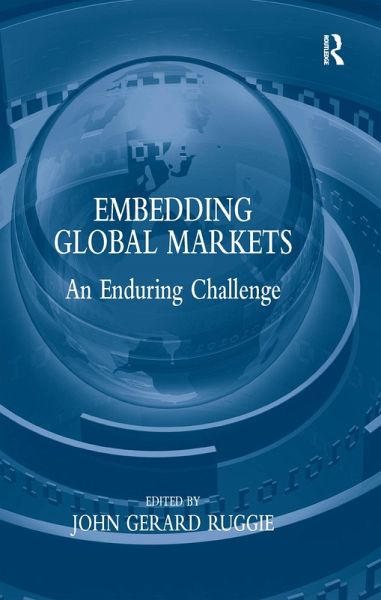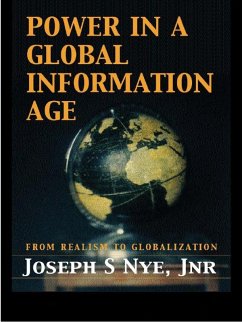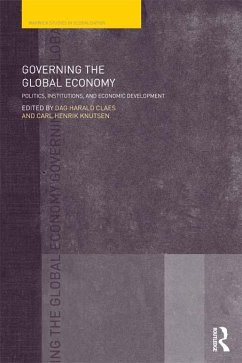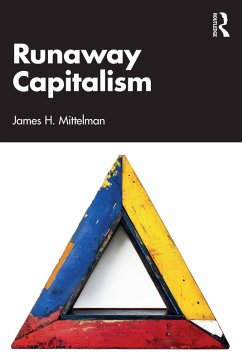
Embedding Global Markets (eBook, PDF)
An Enduring Challenge
Redaktion: Ruggie, John G.
Versandkostenfrei!
Sofort per Download lieferbar
42,95 €
inkl. MwSt.
Weitere Ausgaben:

PAYBACK Punkte
21 °P sammeln!
John Ruggie introduced the concept of embedded liberalism in a 1982 article that has become one of the most frequently cited sources in the study of international political economy. The concept was intended to convey the manner by which capitalist countries learned to combine the efficiency of markets with the broader values of the community that socially sustainable markets themselves require in order to survive and thrive. Examining the concept and the institutionalized practice of embedded liberalism, this collection provides a survey of the macro patterns in industrialized countries. Leadi...
John Ruggie introduced the concept of embedded liberalism in a 1982 article that has become one of the most frequently cited sources in the study of international political economy. The concept was intended to convey the manner by which capitalist countries learned to combine the efficiency of markets with the broader values of the community that socially sustainable markets themselves require in order to survive and thrive. Examining the concept and the institutionalized practice of embedded liberalism, this collection provides a survey of the macro patterns in industrialized countries. Leading scholars combine to demonstrate the benefits of embedded liberalism in practice as well as its gradual erosion at national levels, and to analyze public opinion. They provide a better understanding of what embedded liberalism means, why it matters and how to reconstitute it in the context of the global economy. The contributors contextualize the current challenge historically and theoretically so that students, scholars and policy makers alike are reminded of what is at stake and what is required.
Dieser Download kann aus rechtlichen Gründen nur mit Rechnungsadresse in A, B, BG, CY, CZ, D, DK, EW, E, FIN, F, GR, HR, H, IRL, I, LT, L, LR, M, NL, PL, P, R, S, SLO, SK ausgeliefert werden.













